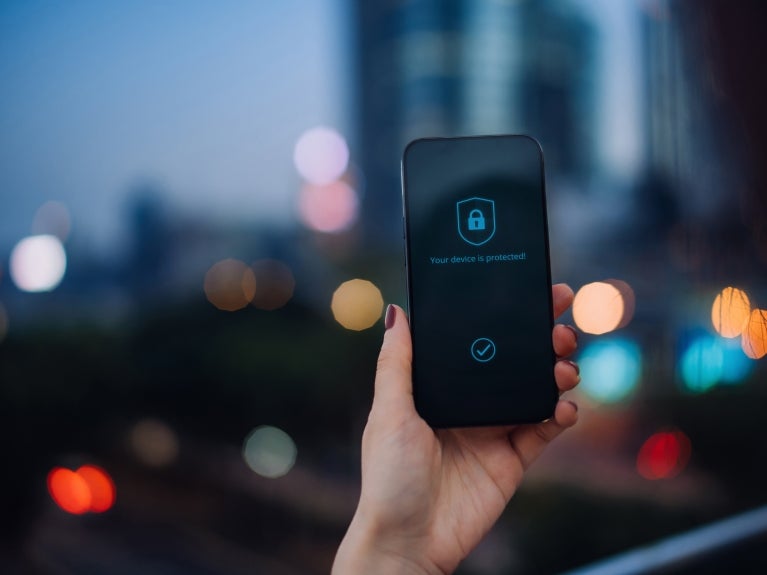SCOTUS Hears Arguments in Warrantless Cell Phone Search Cases

The U.S. Supreme Court is set to decide the circumstances in which police may constitutionally search an arrestee's cell phone without a warrant.
On April 29, 2014, the Court heard arguments in two companion cases—Riley v. California and United States v. Wurie—which occasion the Court to define the scope of the Fourth Amendment in the digital age and strike a balance between an individual's interest in the privacy of his cell phone contents and law enforcement's interests in police safety and preservation of evidence. In Riley, police seized David Leon Riley's smart phone during a traffic stop for an expired licensed plate. Using photos, videos, and call logs obtained through a warrantless search of his phone, along with two hand guns found during a search of his car, police identified Riley as a member of a gang and placed him near the scene of a gang-related shooting that occurred a couple of weeks before his arrest. At trial, although no witness positively identified Riley as a participant in the shooting, the circumstantial evidence from the phone gave the jury enough evidence to convict him of shooting at an occupied vehicle, attempted murder, and assault with a semi-automatic weapon. In Wurie, police arrested Brima Wurie near the scene of a drug transaction and took him to the police station. While there, police seized two cell phones from Wurie. Police observed that one of the cell phones—a flip phone—was repeatedly receiving calls from "my house." Without a warrant, the officers flipped open the phone, reviewed the call log, and traced the phone number to Wurie's apartment. Police obtained a warrant to search Wurie's apartment, where they found crack, marijuana, and other evidence of a drug crime. Wurie was convicted of distribution and possession with intent to distribute crack, and being a felon in possession of a firearm and ammunition. Argument in Riley v. California The Court limited the issue to be decided in Riley to whether the evidence actually admitted at Riley's trial was obtained in an unconstitutional search. Jeffrey L. Fisher of Stanford Law School, representing Riley, distinguished the modern smart phone from other items by focusing on the breadth and quantity of information contained in a smart phone, including information saved in cloud storage. Fisher argued that cell phones do not tend to pose a threat to police safety the way other tangible items might, and that measures exist to prevent the destruction of evidence contained in a cell phone. Fisher advocated for a warrant requirement, which he argued would impose particularity on what information may be searched and how law enforcement may retain data that is collected. In response, the Justices raised the challenge of where a magistrate would draw the line, i.e., what would a search warrant say to delineate information that may be searched? Edward C. Dumont, Solicitor General of California, urged the Court to adopt a categorical rule permitting warrantless searches of cell phones incident to arrest, but the Justices appeared to be in search of a limiting principle that would allow police to search cell phones in defined circumstances. Michael R. Dreeben, U.S. Deputy Solicitor General, as amicus curiae supporting California, argued that law enforcement's interest in police safety and preservation of evidence must often be struck at the moment of arrest, without time to obtain a warrant. He discussed the limited utility of existing technologies, for example, to prevent a remote wipe of the phone data, and urged the Court to avoid founding a constitutional ruling on assumptions about existing technological capabilities. Argument in United States v. Wurie Deputy Solicitor General Dreeben, representing the United States as petitioner in Wurie, reiterated the need for officers to conduct searches at the moment of arrest. When pressed by the Justices to articulate some limiting principles, Dreeben suggested several possibilities: limiting searches to quick, manual searches for suspect identification information; taking the phone off of the network to avoid accessing information saved in cloud storage; and permitting searches only for certain types of crimes and limiting the scope of search to information that might be relevant to the crime of arrest. Judith H. Mizner, Assistant Federal Public Defender for Wurie, advocated for a categorical rule barring police from searching any cell phone incident to arrest. The Justices pressed Mizner to explain the privacy interest of an individual in the information obtained in this case, namely, a phone number, call log, and a home address, observing that this type of information is not necessarily private, thus, the search may have been reasonable under the Fourth Amendment. The Justices also questioned why this case should not be decided under the plain view exception, permitting police to view and use information appearing on the screen of the phone. The Court appears unlikely to announce a categorical rule either wholly barring or permitting warrantless searches of cell phones, and it is unclear whether the Court will make any distinction between flip phones and smart phones, given the vast difference in the amount of information available from each. It remains to be seen what limiting principles, or other exceptions permitting warrantless searches, the Court will rely on to decide these important cases in the area of privacy in the digital age.
Print and share
Explore more in
White Collar Briefly
Drawing from breaking news, ever changing government priorities, and significant judicial decisions, this blog from Perkins Coie’s White Collar and Investigations group highlights key considerations and offers practical insights aimed to guide corporate stakeholders and counselors through an evolving regulatory environment.